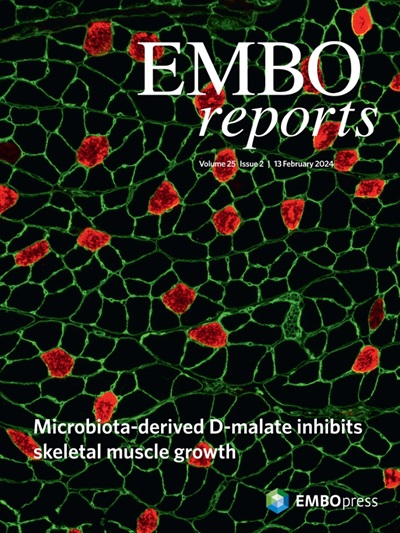Gene therapy for epilepsy targeting neuropeptide Y and its Y2 receptor to dentate gyrus granule cells.
IF 6.5
1区 生物学
Q1 BIOCHEMISTRY & MOLECULAR BIOLOGY
引用次数: 0
Abstract
Gene therapy is emerging as an alternative option for individuals with drug-resistant focal epilepsy. Here, we explore the potential of a novel gene therapy based on Neuropeptide Y (NPY), a well-known endogenous anticonvulsant. We develop a lentiviral vector co-expressing NPY with its inhibitory receptor Y2 in which, for the first time, both transgenes are placed under the control of the minimal CamKIIa(0.4) promoter, biasing expression toward excitatory neurons and allowing autoregulation of neuronal excitability by Y2 receptor-mediated inhibition. Vector-induced NPY and Y2 expression and safety are first assessed in cultures of hippocampal neurons. In vivo experiments demonstrate efficient and nearly selective overexpression of both genes in granule cell mossy fiber terminals following vector administration in the dentate gyrus. Telemetry video-EEG monitoring reveals a reduction in the frequency and duration of seizures in the synapsin triple KO model. This study shows that targeting a small subset of neurons (hippocampal granule cells) with a combined overexpression of NPY and Y2 receptor is sufficient to reduce the occurrence of spontaneous seizures.针对齿状回颗粒细胞神经肽 Y 及其 Y2 受体的癫痫基因疗法。
基因疗法正成为耐药性局灶性癫痫患者的另一种选择。在这里,我们探索了一种基于神经肽 Y(NPY)的新型基因疗法的潜力,NPY是一种众所周知的内源性抗惊厥剂。我们开发了一种共同表达 NPY 及其抑制性受体 Y2 的慢病毒载体,首次将这两种转基因置于最小 CamKIIa(0.4) 启动子的控制之下,使其偏向兴奋性神经元表达,并通过 Y2 受体介导的抑制作用自动调节神经元的兴奋性。首先在海马神经元培养物中评估了载体诱导的 NPY 和 Y2 表达及其安全性。体内实验证明,在齿状回施用载体后,这两种基因在颗粒细胞苔藓纤维末梢中都得到了高效和近乎选择性的过表达。遥测视频脑电图监测显示,在突触素三重 KO 模型中,癫痫发作的频率和持续时间都有所减少。这项研究表明,针对一小部分神经元(海马颗粒细胞)联合过表达 NPY 和 Y2 受体足以减少自发性癫痫发作的发生。
本文章由计算机程序翻译,如有差异,请以英文原文为准。
求助全文
约1分钟内获得全文
求助全文
来源期刊

EMBO Reports
生物-生化与分子生物学
CiteScore
11.20
自引率
1.30%
发文量
267
审稿时长
1 months
期刊介绍:
EMBO Reports is a scientific journal that specializes in publishing research articles in the fields of molecular biology, cell biology, and developmental biology. The journal is known for its commitment to publishing high-quality, impactful research that provides novel physiological and functional insights. These insights are expected to be supported by robust evidence, with independent lines of inquiry validating the findings.
The journal's scope includes both long and short-format papers, catering to different types of research contributions. It values studies that:
Communicate major findings: Articles that report significant discoveries or advancements in the understanding of biological processes at the molecular, cellular, and developmental levels.
Confirm important findings: Research that validates or supports existing knowledge in the field, reinforcing the reliability of previous studies.
Refute prominent claims: Studies that challenge or disprove widely accepted ideas or hypotheses in the biosciences, contributing to the correction and evolution of scientific understanding.
Present null data: Papers that report negative results or findings that do not support a particular hypothesis, which are crucial for the scientific process as they help to refine or redirect research efforts.
EMBO Reports is dedicated to maintaining high standards of scientific rigor and integrity, ensuring that the research it publishes contributes meaningfully to the advancement of knowledge in the life sciences. By covering a broad spectrum of topics and encouraging the publication of both positive and negative results, the journal plays a vital role in promoting a comprehensive and balanced view of scientific inquiry.
 求助内容:
求助内容: 应助结果提醒方式:
应助结果提醒方式:


